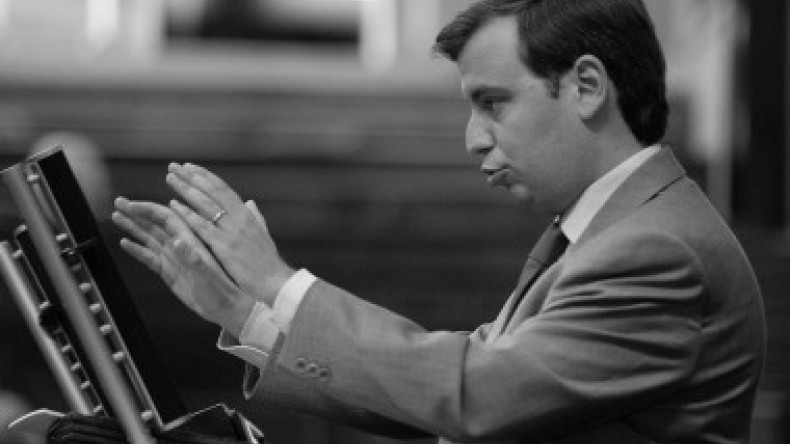
Meet and greet Jordi Xuclà i Costa
The ad hoc committee on Nagorno Karabakh, now re-established within the Parliamentary Assembly of Council of Europe, or PACE, powered by efforts of Mr. Mevlut Cavusoglu, has then appointed a new chairman. The sub-committee will be chaired by Mr. Jordi Xuclà i Costa, a young MP from Spain.
Mr. Jordi Xuclà i Costa has been a member to Spanish Parliament lower chamber – the Congress of Deputies - for the last 11 years, and 7 years out of it has passed with him as a member to the international relations committee. He has been a PACE member for the last 3.5 years. In his career he has participated in a number of electoral observation missions, including in Palestine (Jan. 2006), and traveled to Georgia after the August war with EU delegation.
Previously assembled experience on South Caucasus for Mr. Xuclà i Costa is so far very limited and critics would claim this will make the upcoming mission of Spanish freshman far more difficult. “South Ossetia, Abkhazia and Nagorno Karabakh are the three traditional "cold" [i.e. "frozen"] conflicts [in South Caucasus]”– said Mr. Xuclà i Costa in a phone interview to Panorama.am.
As Mr. Xuclà i Costa claimed earlier in an interview to one of Azerbaijani news agencies, he had some experience on conflict resolution, Panorama.am asked him to elaborate further on what kind of compatible knowledge and expertise he could offer to contribute to the mission of OSCE Minsk Group co-Chairmen.
"Well, in my point of view this is an interview in order to explain my projects [in the auspices of the PACE sub-committee – Panorama.am], this is not a hearing [in a Parliament - Panorama.am]. I am 37 years old, [and] I have a lot of experience in the Parliament for more than 10 years" – was the direct answer, leaving the main idea of the question untouched.
On January 25 the Armenian delegation to PACE has written a letter to Members of the Bureau, underlining "[certain] grounds for the Armenian delegation to question genuine, impartial and fair intentions of the Bureau to seek reconciliation and to exercise responsibility in a highly sensitive matter". Nearly all major political forces in Armenia and Nagorno-Karabakh are against the restoration of this platform, as they claim it would deviate the discussion from the Minsk Process.
Newsfeed
Videos






























